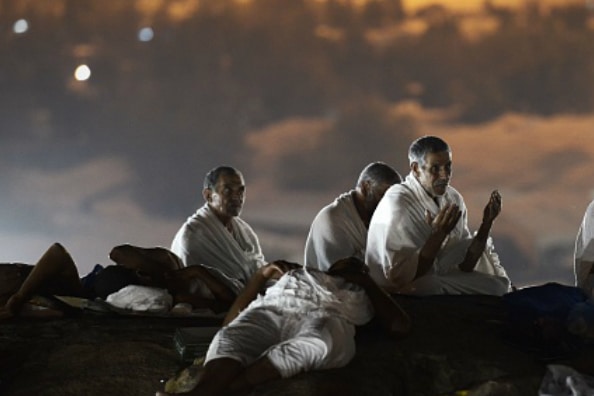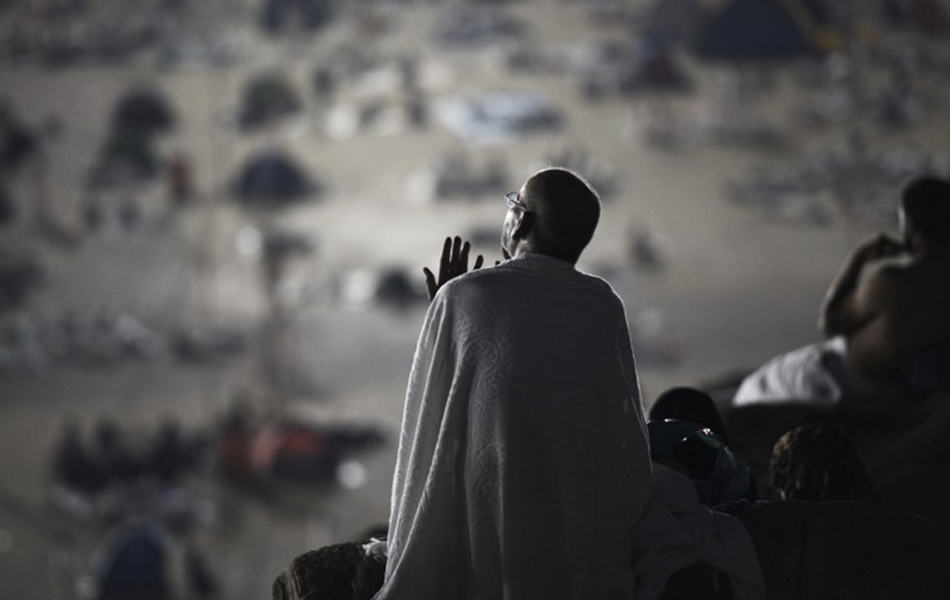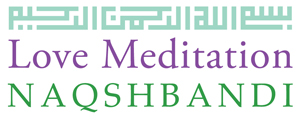Day of Arafat – Best Day for Supplication
Day of Arafat – Best Day for Supplication

Day of Arafat – Best Day for Supplication:
The day of ‘Arafāt is the 9th day of the month of Dhūl Ḥijjah on the Islamic calendar. It occurs near the end of the Ḥajj pilgrimage as pilgrims stand on the plain of ‘Arafāt to perform prayers, supplications, and acts of worship.
Abdu Rahman ibn Ya’mar RA reported: The Messenger of Allah, peace and blessings be upon him, said:
الْحَجُّ عَرَفَةُ
The Ḥajj is ‘Arafāt.
Source: Sunan al-Nasā’ī 3016
The Holy Prophet (SWS) likened the day of ‘Arafāt to a day of celebration (eīd). While it is not the day of Eīd in a technical sense, it is a celebration in that it signifies the end of the successful completion of the Ḥajj pilgrimage. It should be a time of joy as well as reverence and devotion.
Uqbah ibn Amir reported: The Messenger of Allah, peace and blessings be upon him, said:
يَوْمُ عَرَفَةَ وَيَوْمُ النَّحْرِ وَأَيَّامُ التَّشْرِيقِ عِيدُنَا أَهْلَ الْإِسْلَامِ وَهِيَ أَيَّامُ أَكْلٍ وَشُرْبٍ
The day of ‘Arafāt, the day of sacrifice, and the three following days (tashrīq) are our celebration for the people of Islam. They are days of eating and drinking.
Source: Sunan al-Tirmidhī 773
‘Arafāt was the day that Allah completed the religion for Muslims. It is also the day that the Prophet (SWS) delivered his famous farewell sermon that declared the sanctity of human life and an end to racism.

Sayyidina Umar ibn Al-Khattab RA reported: A man from the Jews said, “O leader of the believers, there is a verse you recite in your book and, had it been revealed to us as Jews, we would have taken that day as a celebration.” Umar RA said, “Which verse is it?” The man recited the verse:
الْيَوْمَ أَكْمَلْتُ لَكُمْ دِينَكُمْ وَأَتْمَمْتُ عَلَيْكُمْ نِعْمَتِي وَرَضِيتُ لَكُمْ الْإِسْلَامَ دِينًا
Today I have completed your religion for you, perfected my favor upon you, and have chosen Islam as your religion. (5:3)
Sayydina Umar RA said:
قَدْ عَرَفْنَا ذَلِكَ الْيَوْمَ وَالْمَكَانَ الَّذِي نَزَلَتْ فِيهِ عَلَى النَّبِيِّ صَلَّى اللَّهُ عَلَيْهِ وَسَلَّمَ وَهُوَ قَائِمٌ بِعَرَفَةَ يَوْمَ جُمُعَةٍ
I know the day and place in which this verse was revealed to the Prophet, peace and blessings be upon him. It was while he was standing on the day of ‘Arafāt on Friday.
Source: Ṣaḥīḥ al-Bukhārī 45
‘Arafāt is one of the most blessed times in Islam because Allah frees more Muslims from Hellfire and expiates more sins on this day than any other day.
Aisha RA reported: The Messenger of Allah, peace and blessings be upon him, said:
مَا مِنْ يَوْمٍ أَكْثَرَ مِنْ أَنْ يُعْتِقَ اللَّهُ فِيهِ عَبْدًا مِنْ النَّارِ مِنْ يَوْمِ عَرَفَةَ وَإِنَّهُ لَيَدْنُو ثُمَّ يُبَاهِي بِهِمْ الْمَلَائِكَةَ فَيَقُولُ مَا أَرَادَ هَؤُلَاءِ
There is no day upon which Allah frees more of his servants from the Hellfire than the day of ‘Arafāt. He draws near and then he praises them to the angels, saying: What do these want?
Source: Ṣaḥīḥ Muslim 1348
As such, it is one of the best days to strive in worship, good deeds, and specifically to increase our supplications. Among the best supplications to say during ‘Arafāt are those declaring the oneness, greatness, and praise of Allah.
Amr ibn Shu’aib RA reported: The Messenger of Allah, peace and blessings be upon him, said:
خَيْرُ الدُّعَاءِ دُعَاءُ يَوْمِ عَرَفَةَ وَخَيْرُ مَا قُلْتُ أَنَا وَالنَّبِيُّونَ مِنْ قَبْلِي لَا إِلَهَ إِلَّا اللَّهُ وَحْدَهُ لَا شَرِيكَ لَهُ لَهُ الْمُلْكُ وَلَهُ الْحَمْدُ وَهُوَ عَلَى كُلِّ شَيْءٍ قَدِيرٌ
The best supplication is that which is made on the day of ‘Arafāt. The best of it is what was said by myself and the prophets before me: There is no god but Allah alone without any partners, unto him belong the dominion and all praise and he has power over all things.
Source: Sunan al-Tirmidhī 3585
Pilgrims should also remember to pray for their loved ones, the Muslims, the righteous, and humanity at large. At the same time, Muslims who are not performing the pilgrimage should pray for those who are. If we meet any pilgrims on their journey, we should honor them as they are the guests of Allah.
Abu Huraira RA reported: The Messenger of Allah, peace and blessings be upon him, said:
اللَّهُمَّ اغْفِرْ لِلْحَاجِّ وَلِمَنِ اسْتَغْفَرَ لَهُ الْحَاجُّ
O Allah, forgive the pilgrims and those who seek forgiveness for the pilgrims.
Source: al-Mu’jam al-Awsaṭ, Grade: Hasan
Ka’b, may Allah be pleased with him, said:
الْحَاجُّ وَالْمُعْتَمِرُ وَالْمُجَاهِدُ فِي سَبِيلِ اللَّهِ وَفْدُ اللَّهِ سَأَلُوا فَأُعْطُوا وَدَعَوْا فَأُجِيبُوا
The pilgrims and soldiers in the way of Allah are the guests of Allah. If they ask, then give them. If they call you, then answer them.
Source: Muṣannaf Ibn Abī Shaybah 4/191
It is recommended to fast on the day of ‘Arafāt for those not performing the Ḥajj pilgrimage, as it is a means of expiation and purification from sin.
Abu Qatadah RA reported: A man came to the Messenger of Allah, peace and blessings be upon him, and he said, “What is your view about fasting on the day of ‘Arafāt?” The Prophet (SWS) said:
يُكَفِّرُ السَّنَةَ الْمَاضِيَةَ وَالْبَاقِيَةَ
It will expiate the sins of the previous and upcoming years.
Source: Ṣaḥīḥ Muslim 1162, Grade: Sahih
It is not recommended to fast on the day of ‘Arafāt for those who are performing the Ḥajj pilgrimage in order for them to have strength to perform more prayers and supplications, but it is still permissible for pilgrims to fast if they wish.
Ibn Umar, may Allah be pleased with him, said:
حَجَجْتُ مَعَ النَّبِيِّ صَلَّى اللَّهُ عَلَيْهِ وَسَلَّمَ فَلَمْ يَصُمْهُ وَمَعَ أَبِي بَكْرٍ فَلَمْ يَصُمْهُ وَمَعَ عُمَرَ فَلَمْ يَصُمْهُ وَمَعَ عُثْمَانَ فَلَمْ يَصُمْهُ وَأَنَا لَا أَصُومُهُ وَلَا آمُرُ بِهِ وَلَا أَنْهَى عَنْهُ
I have performed the Ḥajj pilgrimage with the Prophet, peace and blessings be upon him and he did not fast it. I performed it with Abu Bakr and he did not fast, with Umar and he did not fast, and with Uthman and he did not fast. I do not fast it, nor do I command it or prohibit it.
Source: Sunan al-Tirmidhī 751, Grade: Hasan
At-Tirmidhi said:
وَالْعَمَلُ عَلَى هَذَا عِنْدَ أَكْثَرِ أَهْلِ الْعِلْمِ يَسْتَحِبُّونَ الْإِفْطَارَ بِعَرَفَةَ لِيَتَقَوَّى بِهِ الرَّجُلُ عَلَى الدُّعَاءِ وَقَدْ صَامَ بَعْضُ أَهْلِ الْعِلْمِ يَوْمَ عَرَفَةَ بِعَرَفَةَ
The practice among the majority of scholars is that it is recommended to not fast on the day of ‘Arafāt in order for a man to have strength to supplicate, but some of the scholars would fast on the day of ‘Arafāt while at ‘Arafāt.
Source: Sunan al-Tirmidhī 750
The day of ‘Arafāt is among the holiest times of the year in Islam. It commemorates the finality of revelation and the completion of the Ḥajj pilgrimage. We should increase our good deeds, prayers, and supplications during this time. If we are not present at ‘Arafāt, it is best to fast the day in remembrance. If we are on the plain of ‘Arafāt, it is best to save our strength for worship.
BIr hurmati Habib bir hurmati man Alzanlta Surat al-Fatiha.

